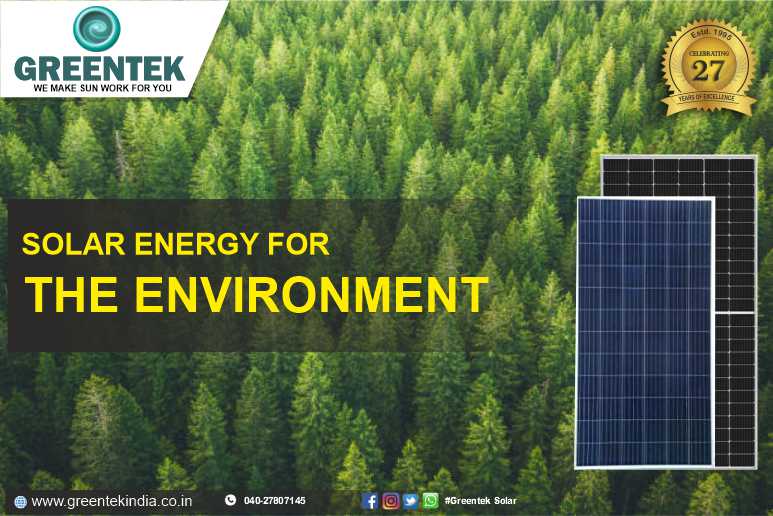
List of solar energy's benefits for the environment
Commercial spaces and office buildings are adopting commercial solar panels, and Indian homeowners are installing residential solar systems at a quicker rate than ever. The primary factor driving the rise in solar panel installations is a decrease in solar panel costs. Another factor driving the demand for residential and commercial solar panels in Telangana is the rebates and incentives provided by the Indian government.
I) Brings down carbon emissions
II) Reducing air pollution
III) Decreases the threat from climate change
IV) Conservation of water
V) Decreases reliance on finite fossil fuels
I) Brings down carbon emissions
The primary source of the carbon footprint is the combustion of fossil fuels to produce energy. The amount of greenhouse gases discharged into the atmosphere will be greatly reduced by using solar power to generate electricity. Burning fossil fuels releases greenhouse gases, particularly carbon dioxide, which contribute to environmental crises including global warming and climate change.
II) Reducing air pollution
When fossil fuels are used to produce power, dangerous chemicals including methane, carbon monoxide, carbon dioxide, nitrogen oxides, and others are released into the atmosphere. These harmful gases raise the level of air pollution, endangering human health. Solar energy produced by solar panels helps stop the emission of harmful pollutants into the atmosphere.
III) Decreases the threat from climate change
Global warming and climate change are the two main effects of using fossil fuels to produce power. As a clean, sustainable, and renewable energy source for generating power, solar energy doesn’t release any greenhouse gases. As a result, Greentek commercial solar energy production slows down climate change.
IV) Conservation of water
Several liters of water are needed for each step in the production of electricity from traditional energy sources like coal and natural gas, from extraction through transportation. Solar panels, however, do not require water to operate. Tens of thousands of gallons of water are saved annually as a result.
V) Decreases reliance on finite fossil fuels
On the world, fossil fuels are a finite resource. Our primary source of electricity comes from the grid, which is run by burning fossil fuels like coal, natural gas, and oil. Fossil fuels are no longer used thanks to commercial solar panels. Solar energy uses sunshine to produce sustainable electricity. So, solar energy can serve as a substitute energy source that is readily produced without the use of the available fossil fuels.

